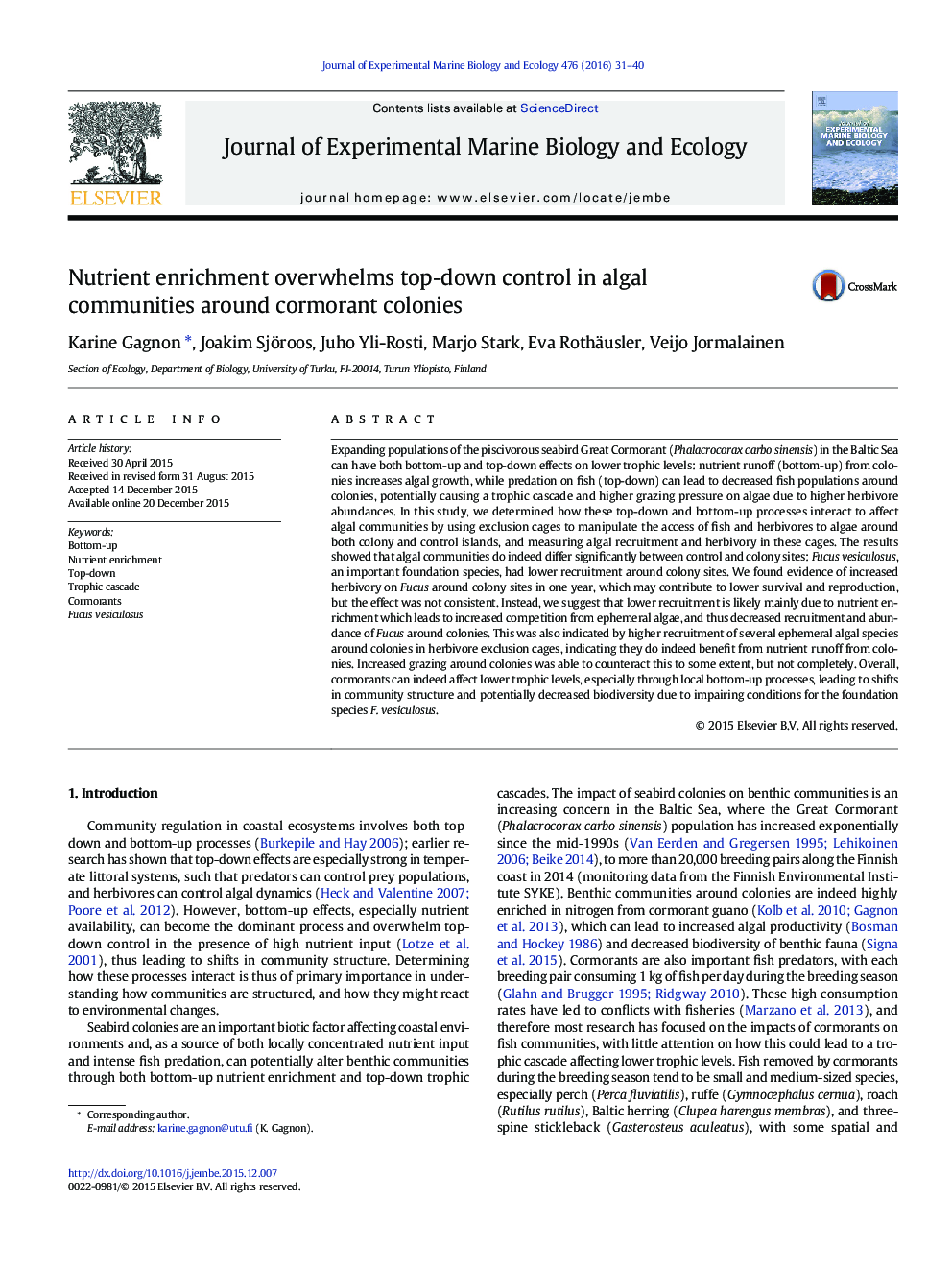| کد مقاله | کد نشریه | سال انتشار | مقاله انگلیسی | نسخه تمام متن |
|---|---|---|---|---|
| 4395342 | 1618399 | 2016 | 10 صفحه PDF | دانلود رایگان |
• We studied how cormorant colonies affect algae through top-down and bottom-up processes.
• Algal communities differed between colony and control islands.
• There was lower recruitment of the foundation species Fucus vesiculosus around colonies.
• Ephemeral algae responded positively to nutrient runoff from colonies.
• Top-down effects could not completely counteract nutrient enrichment.
Expanding populations of the piscivorous seabird Great Cormorant (Phalacrocorax carbo sinensis) in the Baltic Sea can have both bottom-up and top-down effects on lower trophic levels: nutrient runoff (bottom-up) from colonies increases algal growth, while predation on fish (top-down) can lead to decreased fish populations around colonies, potentially causing a trophic cascade and higher grazing pressure on algae due to higher herbivore abundances. In this study, we determined how these top-down and bottom-up processes interact to affect algal communities by using exclusion cages to manipulate the access of fish and herbivores to algae around both colony and control islands, and measuring algal recruitment and herbivory in these cages. The results showed that algal communities do indeed differ significantly between control and colony sites: Fucus vesiculosus, an important foundation species, had lower recruitment around colony sites. We found evidence of increased herbivory on Fucus around colony sites in one year, which may contribute to lower survival and reproduction, but the effect was not consistent. Instead, we suggest that lower recruitment is likely mainly due to nutrient enrichment which leads to increased competition from ephemeral algae, and thus decreased recruitment and abundance of Fucus around colonies. This was also indicated by higher recruitment of several ephemeral algal species around colonies in herbivore exclusion cages, indicating they do indeed benefit from nutrient runoff from colonies. Increased grazing around colonies was able to counteract this to some extent, but not completely. Overall, cormorants can indeed affect lower trophic levels, especially through local bottom-up processes, leading to shifts in community structure and potentially decreased biodiversity due to impairing conditions for the foundation species F. vesiculosus.
Journal: Journal of Experimental Marine Biology and Ecology - Volume 476, March 2016, Pages 31–40
